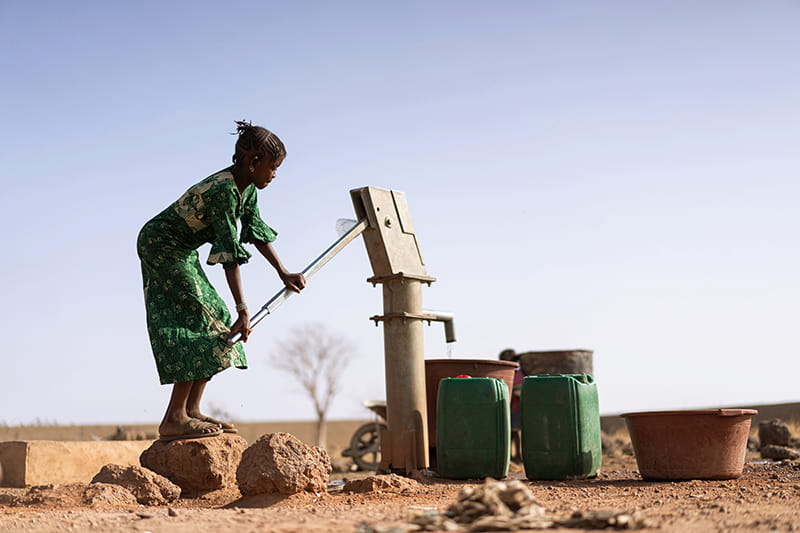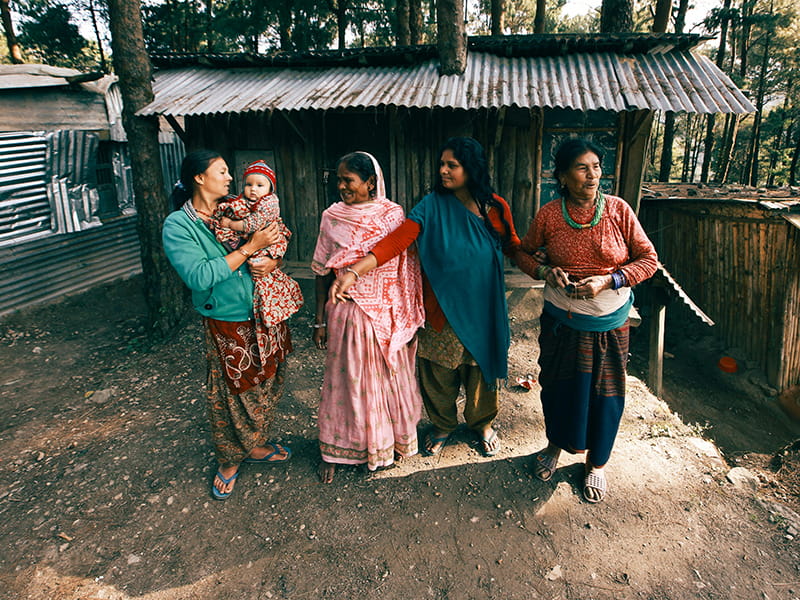Opening Ceremony lays the foundation for cross-sector collaboration and breakthrough solutions.
5 reasons why climate action needs women

COP29 made headlines earlier this year when the planning committee for the world-leading climate conference was revealed to have 28 members – with not a single woman among them. The backlash was swift, from advocacy groups like She Changes Climate labelling the oversight "a regressive step," and organizations like the UN calling it "shocking,” prompting the addition of 12 women to the board.
The controversy was a stark reminder of a wider problem plaguing efforts to adapt to and mitigate the effects of climate change: the exclusion of women.
As rising temperatures wreak havoc on our environment, women are often left out of climate change discussions and decisions. As we enter a crucial few years in averting climate disaster, here are five reasons it is essential to involve and empower women in the efforts against climate change.
1.Women are more impacted by climate change
The majority of the world’s poor are women, and they often rely heavily on natural resources that are being ravaged by the floods, droughts, landslides, hurricanes and other natural disasters exacerbated by climate change.
Additionally, household responsibilities like childcare, cooking and resource gathering often fall to women. In harsh climates, these already heavy burdens become more difficult, time-consuming and dangerous.

In one example from UN Women, we see how a severe 2022 drought in Ethiopia devastated communities and women particularly. The extreme pressures saw increased rates of girls and women forced into prostitution for survival, domestic violence, forced or early marriage, and girls leaving education to look after family members or assume household responsibilities like food gathering or carrying water.
The effects of climate change on women have been well-documented, ranging from fewer opportunities to rising domestic violence rates to decreased mental health. As those most impacted, women should have a clear and powerful voice in how we confront the challenge of climate change.
2. Women have less access to resources to help them adapt
Across the globe, entrenched gender inequality leaves women doubly impacted. They face harsher blows from crises, with flimsier shields to defend themselves.
With economic and social disparities, women often have less access to vital resources like land, credit, technology, education or economic opportunities. These disparities have immediate impacts for individual women and long-term effects that widen the gender gap – a vicious circle seen in both developed and developing economies.
For example, 80% of people who are displaced by climate change are women. In one vivid example of this inequality, after hurricane Katrina hit New Orleans, of the 1 million people displaced, the majority were African-American single mothers. This changed the shape of the city; there was an 83% decrease in the number of low-income, female-headed households in the city in the months following the storm.
Women have a unique understanding of the blind spots in the mitigation and adaptation efforts that so often fail them. By involving women in consultation, planning and execution, initiatives are more likely to support women effectively, and by extension, support their families and communities.
3. Women have immense potential as agents of change...
Across countries, women wield significant influence in their communities, especially in times of turmoil.
As lynchpins of households and caregivers, women are often directly responsible for the wellbeing of children and community members and are often first responders after a disaster.
In wealthy economies, women and are more likely to participate in sustainable initiatives like recycling, conscious spending, waste reduction and energy conservation programs.

4. ...and women leaders are associated with better sustainable outcomes
Given the opportunity, women have been shown to use this influence for positive climate impact. Research suggests that climate leadership is most effective when women have a seat at the table.
Women have been shown to be more likely than men to be concerned with climate issues. One US survey showed that more than half of women (69%) are concerned that climate change will harm them personally, while for men, this number was 48%. In Europe, surveys show that the share of women who agree that it's important to care for nature and the environment is higher than men, across countries.
This increased preoccupation is reflected in outcomes. Women-led firms have higher environmental, social and governance scores. Companies with three or more female directors perform better on certain measures of environmental performance. Nations with a larger share of women in parliament are more likely to adopt climate-oriented policies.
5. Women are essential to succeeding in the fight against climate change

But the most compelling reason that we should actively involve women in climate action? Climate action will fail without them.
Climate change isn't a fight we can win with half of the global population relegated to the spectator stands. Rising temperatures threaten our food, our water, our health and our future. As the backbone of communities, women wield immense influence and untapped power waiting to be channeled toward the climate crisis.
Women’s knowledge, experience and influence, in households and in boardrooms, is crucial for building a greener, more sustainable world and safeguarding the future for everyone for generations to come.

